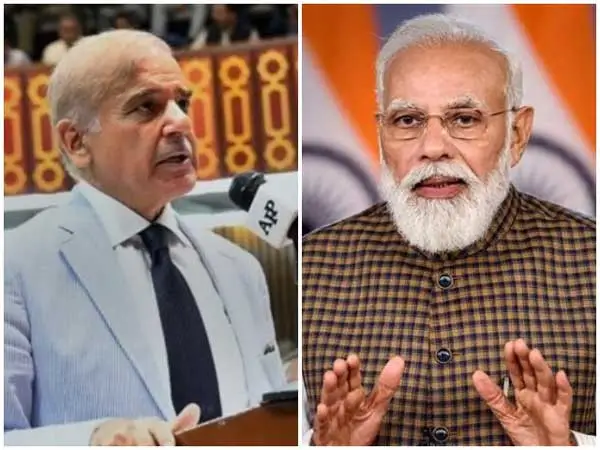Pakistan Prime Minister Shehbaz Sharif’s recent statement seeking permanent peace with New Delhi has given hope to the country’s economic policymakers that trade between the two countries could resume in the near future. Amid deepening economic crisis in Pakistan and the rapid geopolitical shifts, voices have come up favouring resumption of trade and boosting connectivity with India.
“We want permanent peace with India through dialogue as war is not an option for either of the countries,” Sharif said while speaking to a delegation of students from Harvard University.
Earlier Pakistan’s all-powerful Army Chief General Qamar Javed Bajwa, too, underlined the need to resolve outstanding issues and disputes between the two countries through dialogue.
“Pakistan continues to believe in using dialogue and diplomacy to resolve all outstanding issues including the Kashmir dispute and is ready to move forward on this front if India agrees to do so,” Bajwa had said.
Trade between the two countries has remained suspended since 2019. A World Bank study undertaken in 2018 said that trade between India and Pakistan could go as high as $37 billion if the situation normalises.
Trade and structural reforms key for economic revival in Pakistan
Pakistan is expecting to receive a bailout package from the International Monetary Fund (IMF) by the end of the month. A few other countries including Saudi Arabia, too, have committed to provide the necessary assistance.
However, this will only help the country tide over the immediate crisis related to the balance of payments. For the economy to start performing, Pakistan needs to take pragmatic measures detached from politics.
Captains of industry in Pakistan have been stressing the need to revive trade with India for long.
In February, billionaire Mian Muhammad Mansha pointed out that Islamabad needed to take a regional approach to economic development. “Europe fought two great wars, but ultimately settled for peace and regional development. There is no permanent enmity,” Mansha had said.
Pakistan Tehreek-e-Insaaf leader and former prime minister Imran Khan had halted trade with India after the Narendra Modi government decided to abrogate Article 370, withdrawing the special status accorded to Jammu and Kashmir.
Khan even downgraded diplomatic ties with India.
The decision to resume trade with India will not be an easy one for Sharif. “It is a political decision and following the inflationary pressures, a large section of the citizens is already unhappy with his government. So, we will have to wait and watch,” an analyst told India Narrative. “There will be resistance though it is important to understand what Bajwa’s view on this would be final,” he added.
Pakistan based newspaper the Dawn has pointed out that while Bangladesh sees its future in human development and economic growth, for Pakistan human development is a distant second.
“The bulk of national energies remain focused upon check-mating India. Relations with Afghanistan and Iran are therefore troubled; Pakistan accuses both of being excessively close to India,” it added.




















